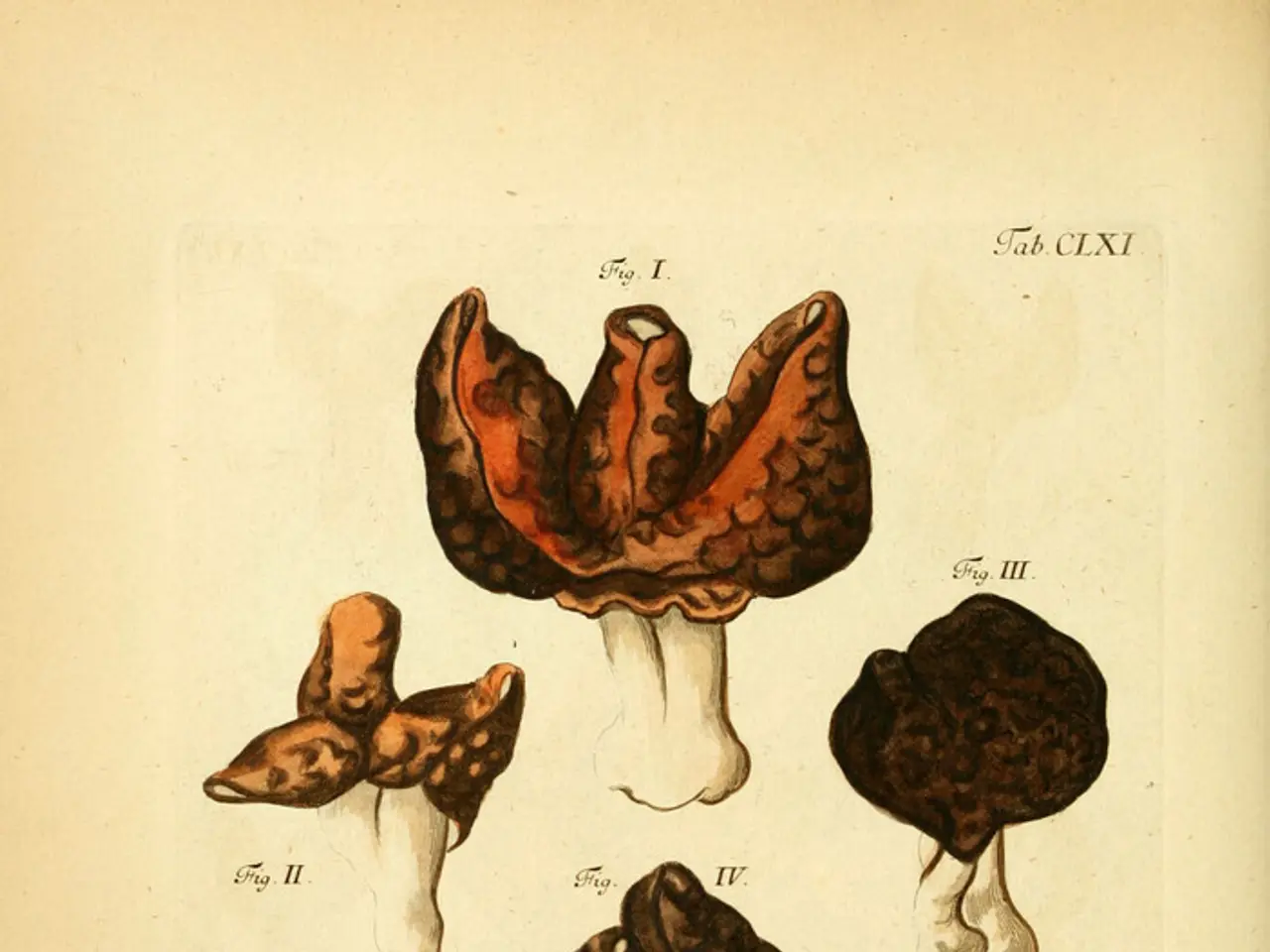Natural Enhancement of Mood and Mental Health through Lion's Mane Mushroom
In recent years, the Lion's Mane Mushroom (Hericium erinaceus) has garnered attention for its potential benefits in managing mood disorders such as depression and anxiety.
A significant 2010 placebo-controlled study on 30 menopausal women revealed that daily supplementation with 2g of Lion's Mane (via cookies) for 4 weeks led to a significant reduction in symptoms of depression and anxiety compared to placebo, with no reported adverse effects [1][3][4]. A more recent systematic review in 2020 of three randomized, double-blind, placebo-controlled human trials concluded that Lion's Mane has potential antidepressant effects and mood-lifting benefits, generally well-tolerated without serious safety concerns [1].
Other human clinical trials indicate improved mood and reduced anxiety symptoms in various populations, with doses ranging between 750 mg to 3.6 g daily. Benefits typically emerge within 4 to 8 weeks [3].
Mechanistic research supports these clinical findings by showing Lion's Mane promotes nerve growth factor (NGF) stimulation, which can enhance brain plasticity, potentially contributing to its mood-regulating and anxiety-reducing effects [3].
While the clinical evidence is promising, most studies have relatively small sample sizes or short durations. Larger, more extensive trials would help confirm these effects and optimal dosing.
It's important to note that although Lion's Mane may influence serotonin and nerve growth pathways that relate to mood, there is no conclusive data on interactions with antidepressant medications. Caution and medical advice are recommended when combining treatments [5].
Lion's Mane is available in various forms, including fresh mushrooms, powders, capsules, and teas. Numerous studies have explored its cognitive-enhancing effects, consistently reporting improvements in various aspects of brain function. For those looking to maximize the mood and cognitive benefits, Lion's Mane can be combined with other natural mood enhancers like Omega-3 fatty acids, magnesium, or green tea.
Emerging research suggests that Lion's Mane may offer potential benefits in the context of neurodegenerative diseases such as dementia and Alzheimer's. Studies have shown that Lion's Mane can positively affect cognitive functions, particularly memory and concentration. Lion's Mane stands out for its natural origin and lack of significant side effects compared to traditional mood-enhancing supplements.
Including Lion's Mane in your diet isn't just about supplements; the mushroom can be a delicious addition to meals. Its impact on cognitive health is significant, contributing to improved brain function and cognitive resilience. Lion's Mane is observed to help reduce feelings of anxiety and stress, making it a potential natural remedy for those struggling with mood disorders.
- The mental health benefits of the Lion's Mane Mushroom have been studied extensively, with focus on its potential role in managing mood disorders like depression and anxiety.
- A placebo-controlled study on 30 menopausal women observed a significant reduction in symptoms of depression and anxiety after 4 weeks of daily supplementation with 2g of Lion's Mane.
- The science behind Lion's Mane suggests it promotes nerve growth factor (NGF) stimulation, which enhances brain plasticity, potentially contributing to its mood-regulating effects.
- Given its potential mood-lifting benefits and generally well-tolerated nature, Lion's Mane is other times combined with natural mood enhancers like Omega-3 fatty acids, magnesium, or green tea for stronger effects.
- While the clinical evidence for Lion's Mane is promising, longer and more extensive trials are needed to confirm its effects and optimal dosing.
- Emerging research also indicates that Lion's Mane may have potential benefits in the context of neurodegenerative diseases, offering improvements in memory and concentration.
- Aside from supplements, incorporating Lion's Mane into your meals can be a delicious way to enjoy its cognitive health benefits, contributing to improved brain function and cognitive resilience.
- With its natural origin and lack of significant side effects compared to traditional mood-enhancing supplements, Lion's Mane may be a viable natural remedy for those struggling with mood disorders, helping to reduce feelings of anxiety and stress.




